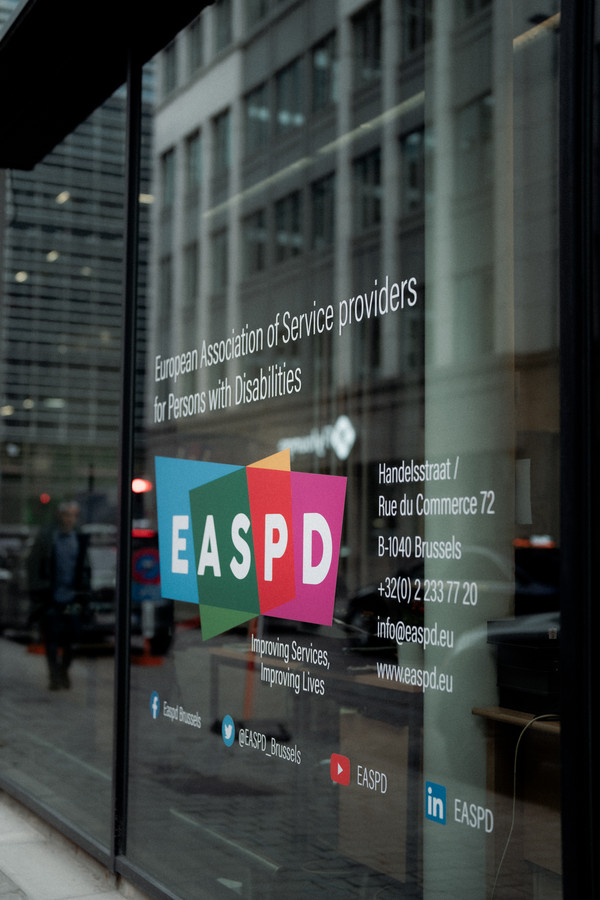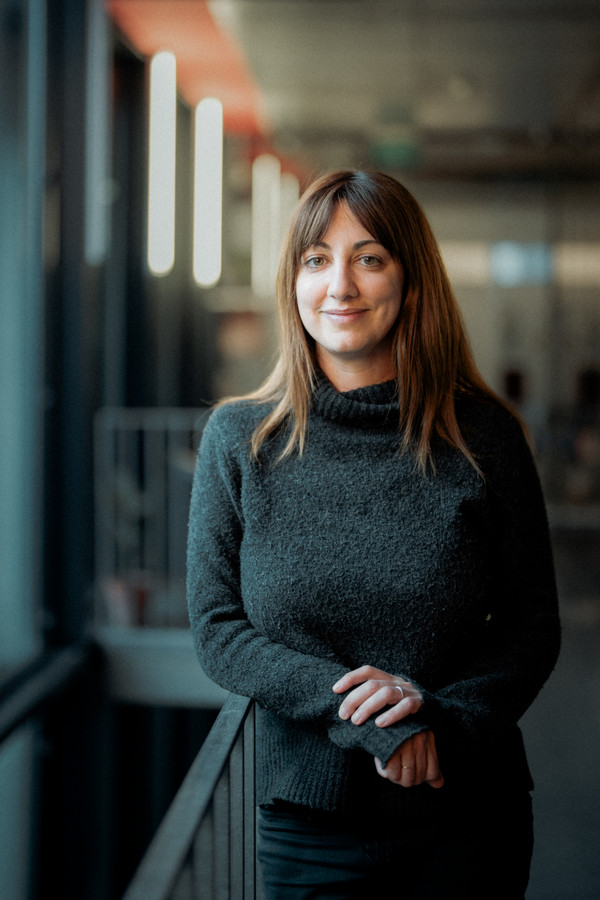Inclusive University Digital Education: Partner in Focus with EASPD

Image of EASPD logo on the front window of EASPD office.

Image of Irene Bertana
As the Inclusive University Digital Education (InclUDE) project moves into its final months, the project partners are taking the time to reflect on how the findings of the project can be best shared and used by universities, students, social service providers and policy makers.
In an effort to bring together stakeholders, and present the tools the project has developed the Include partners are hosting an online conference on Thursday, September 22, 2022 11:00 - 13:00 CEST.
A key aim of the event will be look to the future, and the policies that are needed to ensure truly accessible digital universities moving forward. The adoption of key education policies, whether at a European, national or institutional level, serve as important tools, to set the standard of inclusive digital education, raise awareness of its importance and to support the availability of the resources that are needed to successfully implement it.
With this in mind, the project’s final Partner in Focus is with Irene Bertana, Senior Policy Officer at theEuropean Association of Service providers for Persons with Disabilities (EASPD). Based in Brussels, Belgium, the organisation represents support services for persons with disabilities at a European level with the aim to have an impact on European policy, share information and promote innovation in the sector. We spoke to Irene to find out more about EASPD’s work, and its relevance for inclusive higher education.
Who is EASPD? What does the organisation do?
EASPD is a network of social care and support services who support persons with disabilities across Europe and beyond. We bring the voice of our members to the institutions of the European Union (predominantly the European Commission and European Parliament). We also foster exchange and innovation among members, to create empowering support for persons with disabilities which enables them to live independently and fully participate in their communities.
As an organisation we are active in a number of areas including employment, education, technology, early intervention and arts and culture. While striving to promote the delivery of quality support for persons with disabilities and their families it is also important to look at the fundamental building blocks which services need to be operative. As a result, our work also addresses access to funding, staff working conditions and workforce development within social services.
All of these activities help us work towards our over-arching aim, this being to ensure that disability services fulfil their potential as a key enabler for persons with disabilities to fully enjoy their human rights, as is asserted in the United Nations Convention on the Rights of Persons with Disabilities (UN CRPD).
What is your role in the organisation?
I am Senior Policy Officer. I focus on the areas of early childhood intervention and inclusive education, but I also look into general matters related to the implementation UN CRPD and the transformation of services to foster independent living and inclusion in the community.
Why does EASPD work on the topic of inclusive education?
The United Nations Convention on the Rights of Persons with Disabilities is a key compass for the work of EASPD. Alongside a number of other fundamental rights, the UN CRPD asserts the right that persons with disabilities have to have an education in mainstream settings with the appropriate support and accommodations. Attending schools and classes alongside their peers enables learners with disabilities to interact and make connections with other children who live in their neighbourhood and be part of the community. Being part of the community helps to put these children onto a path towards inclusion later in life. Children who attend mainstream schools are more likely to gain access to work, live independently and to achieve their life objectives. However, inclusive education is far from reality in many countries. Education for students with disabilities is often provided in the so-called “special schools” where they are separated from other learners. The move away from this parallel education systems has its difficulties, creating resistance and sometimes a fear of change from parents, teachers and others in the community. We can however see experiences of successful inclusion across Europe. It is important that the know-how of these experiences and the knowledge of the special education sector is shared with the mainstream education system. Both sides need to work together towards inclusive education.
What role can the European Union play in promoting accessible and inclusive higher education?
In general, the EU can place inclusive education higher in the agenda, and stress its importance in EU initiatives around equality, education and disability. It is also important to collect data on the state of play for inclusive education. This can be done by creating reports and incorporating additional data collection mechanisms within the European Semester process, which a method of monitoring and coordinating economic and employment policies across the European Union.
Potentially, the EU could go a step further by developing a clear policy framework that can be adopted by Member States. The development of these policies should be done in cooperation with persons with disabilities, the organisations which represent them, families, universities, education providers and other relevant stakeholders.
Currently the Child Guarantee will also be a key tool through which the EU can promote inclusive education. The Child Guarantee is an initiative that aims to reduce the number of children who are at risk of poverty and social exclusion. The initiative is led by the EU and will be implemented by Member States. The Guarantee stresses the importance of access to key services for “children in need,” including access to high quality, inclusive education nurseries and kindergartens. While the initiative focuses on the first years of a child’s life, inclusion from these first years helps to promote an inclusive mindset in society, which can help people to be more open to inclusion in other aspects of life, including higher education.
From your perspective at the EASPD, what do you think is the biggest barrier to inclusive education?
I think the biggest barrier is misconceptions towards inclusive education and a fear of change. Parents don’t want to risk jeopardising the access their child has to the support they need or face additional discrimination; other parents have concerns for the impact that inclusive education has on the quality of their child’s education, teachers fear being alone in implementing inclusion in the classroom. To overcome these fears, it is vital that all stakeholders receive the support and guidance that they need and that the appropriate resources are invested in schools.
Alongside this a lack of political will, to prioritise inclusive education prevents any greater systematic change.
How will the work of the InclUDE project support your work?
While our members aren’t higher education institutions, many do provide training and lifelong learning opportunities. As a result, the online repository of digital tools will be a useful resource for them to make their teaching process more inclusive.
The online repository digital access tools as well as the guidelines for accessible and inclusive online teaching can also be useful to raise awareness of the measures that can be taken in universities and reduce resistance to change, by providing practical tools and information.
More data and awareness on the topic of digital accessibility and information on the use of digital accessibility tools can be used as a lever for advocacy. The InclUDE report, guidelines and policy recommendation can all be directly used to influence EU actions about accessibility and education.
From a policy perspective, what are your top 3 recommendations for the creation of inclusive education?
Proper planning is essential as is ensuring that adequate funding is invested in transitioning from a dual education system into an inclusive one. My third recommendation is that stakeholders must work together to share their experiences and expertise and make fully inclusive education systems a reality.
To join the InclUDE project’s closing conference on 22nd September, click here to register.
The Conference is being hosted within the framework of the Inclusive University Digital Education (InclUDE) project, which aims to promote the realisation of accessible and inclusive higher education opportunities for students with special educational needs. Funded by the Erasmus+ Programme of the European Union, the project is a collaboration between the University of Wolverhampton (UK), Universität Klagenfurt (Austria), Université Rennes II (France) and European Association of Service providers for Persons with Disabilities (Belgium).

